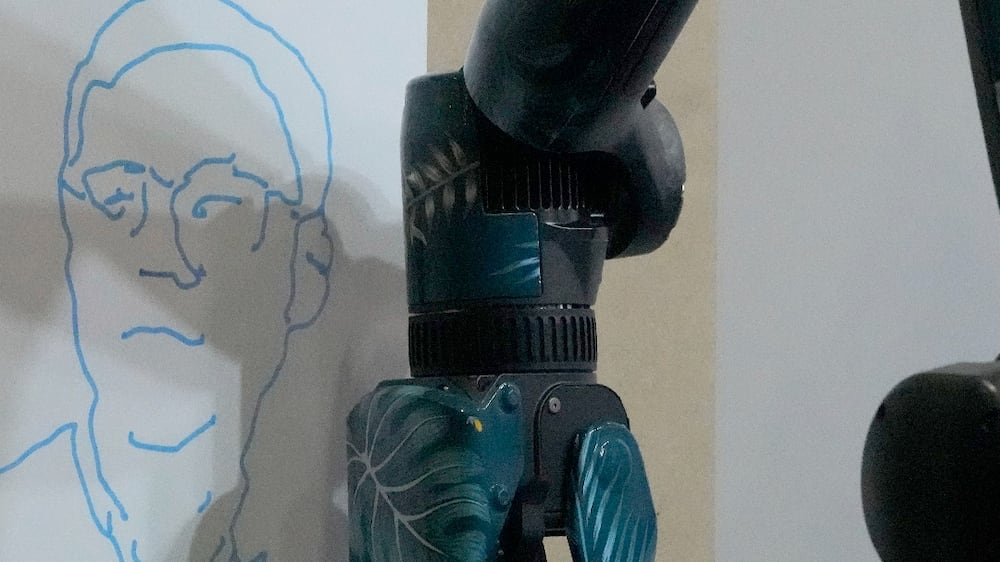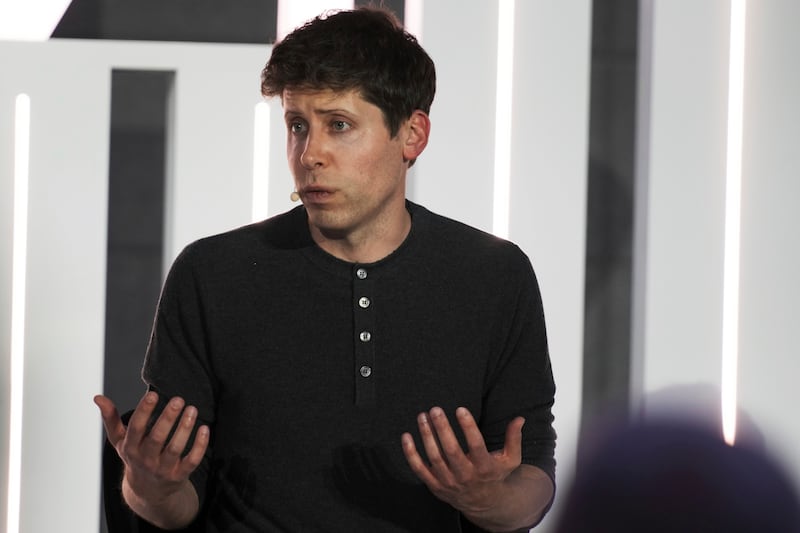OpenAI chief executive Sam Altman said on Tuesday that he was “hopeful that the region can play a central role in a global conversation” to develop safe artificial intelligence, and added that the UAE “has been talking about AI since before it was cool”.
Mr Altman made his comments in Abu Dhabi, the latest stop on a global tour during which he has advocated reducing the risks associated with AI while touting his company's large language model product, ChatGPT.
This week he has been to Israel, Qatar and the UAE and will reportedly be travelling on to India and South Korea.
The tech leader was hosted by Hub71, the government-backed start-up ecosystem, for a one-hour open forum during which he fielded questions from the audience, a departure from his typical format of sit-down interviews and testimonies before lawmakers.
He used the forum to walk back comments he had made that ChatGPT might leave Europe if it is not able to comply with laws set out by the EU.
Under the drafted policy, companies using generative AI tools like ChatGPT will have to disclose any copyrighted material used to develop their systems, Reuters reported.
“We did not threaten to leave the EU,” Mr Altman said. “We're very excited to operate in Europe. What we said is if we can't comply with the law, then we won't break it.
“I think regulation in Europe is good.”
Last month, Omar Al Olama, the UAE's Minister of State for AI, Digital Economy and Remote Work Applications, said the world urgently needs to come together to police AI.
The AI revolution: What does our future look like?

He called for a global coalition to regulate the development and use of AI around the world, comparing the oversight needed to how states are monitored for nuclear arms proliferation.
Mr Altman echoed the idea, saying the world needed an oversight body similar to the International Atomic Energy Agency, which promotes the safe use of nuclear technologies.
He commended the UAE's “desire, commitment and willingness to participate” in the field of AI.
Earlier in the day, Mr Altman met Eric Xing, president of Mohamed bin Zayed University of Artificial Intelligence, to discuss collaboration.
“Look forward to working with him to bringing out more powerful, useful and safe AI,” Mr Xing said in a post on LinkedIn.
Amer Aidi, head of marketing and operations at Hub71, told The National it was “a tremendous honour to host Sam Altman”. He added that the event “exemplifies the UAE’s recognition of AI's immense potential and the need to advance it responsibly”.
Technology, and AI in particular, is at an inflection point: as large language models become more pervasive and sophisticated, experts are raising the alarm over potential dangers.
Last week, Mr Altman signed a short open letter warning that AI may lead to humanity's extinction if risks are not addressed.
“Mitigating the risk of extinction from AI should be a global priority alongside other societal-scale risks such as pandemics and nuclear war,” the statement read.
But he tempered those views in Abu Dhabi.
“I think it’s important that we realise these are tools and not creatures that we’re building,” he said.
He added that it was entirely possible to keep humans involved in AI's development at all times, instead of a future in which AI makes decisions entirely on its own.
“It would be a mistake to take humans out of the loop … the future of humanity is decided by humanity and that is an active decision we can make,” he said.
When asked what GPT-10 – six iterations of OpenAI's large language model forward – might look like, Mr Altman refused to make a prediction, but said it was more than a decade from becoming reality.
“I'm as curious as you. I can't even predict … I think it will be something that is a giant multiplier on human ability and productivity,” he said.
“We will look back at this period of 2023 and say, ‘We didn’t have very good lives then, relative to what’s possible now'.”







